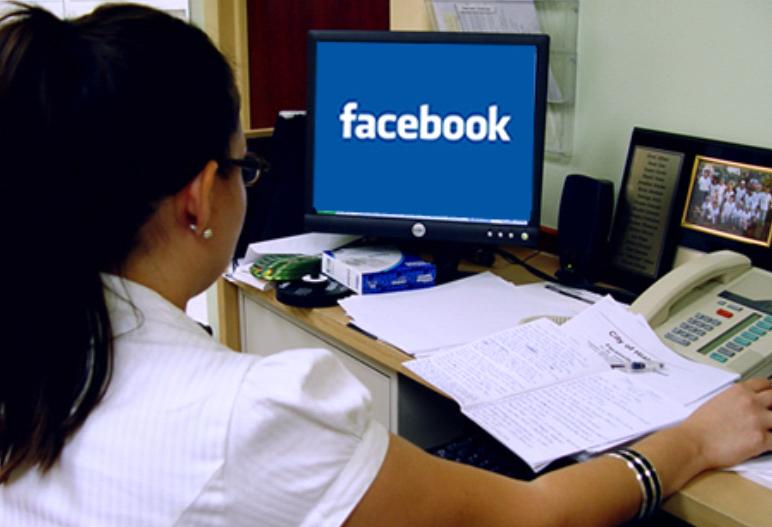Social media has become an integral part of the modern workplace, offering employees new ways to communicate, collaborate, and build professional networks. However, it also presents legal and ethical challenges that employers need to manage. A well-crafted company social media policy maintains compliance with labor laws, protects business interests, and sets clear expectations for employees.
The Benefits of Workplace Social Media
Social media is great for workplace communication and engagement. Many employees use platforms like LinkedIn and industry-specific forums for professional development and networking, while internal communication tools like Slack and Microsoft Teams help them collaborate in real time. Studies show that 82% of employees believe workplace social media improves relationships, and 60% say it supports decision-making.
For businesses, social media plays a huge role in branding and marketing. Employees who share company news and achievements can increase brand awareness and attract talent. Numerous businesses implement workplace social media guidelines that encourage responsible engagement while keeping corporate messaging consistent.
Beyond branding, social media can also support employee well-being. Studies suggest that brief social media breaks can reduce stress and boost productivity when used in moderation. A Pew Research study found that 54% of employees who take short social media breaks feel more recharged. However, companies need to make sure employee social media use isn’t getting in the way of work responsibilities.
The Risks of Social Media at Work
While social media provides many benefits, it also comes with risks that employers must address through clear policies, legal protections, and proper training.
Productivity and Workplace Disruptions
Too much social media during work hours can reduce productivity. Employees spend an average of 40-45 minutes per workday on non-work-related social media activities. Companies need workplace social media guidelines that balance engagement and prevent excessive distractions.
Employee Turnover and Recruitment Risks
Social media exposes employees to job opportunities, increasing the likelihood of turnover. Studies show that 76% of employees who actively use social media at work engage more with other potential employers. Companies can get around this by fostering strong workplace engagement and career development initiatives.
Cybersecurity and Data Privacy Risks
Data security is one of the largest concerns for any modern company. Phishing scams, social engineering attacks, and data leaks often use social media as an entry point. An employee posting seemingly innocuous details about an upcoming project can expose trade secrets without knowing it.
From a legal standpoint, there are several data protection laws companies must comply with when handling corporate information online. The Federal Trade Commission (FTC) enforces consumer data protection laws, and violations of security policies can lead to legal liability. Companies should implement regular security training and require multi-factor authentication (MFA) for business-related social media accounts.
Defamation, Harassment, and Discriminatory Conduct
Employers can be held liable for employees’ social media activity if offensive or discriminatory content is linked to the workplace. Posts that contain harassment, discrimination, or defamatory remarks can lead to lawsuits under Title VII of the Civil Rights Act or state-level anti-discrimination laws.
For example, if an employee uses social media to harass a colleague, the company may be liable if it doesn’t take corrective action. Even private social media posts can create a hostile work environment or damage the company’s reputation. Employers need to make sure their company social media policy prohibits harassment, discrimination, and defamatory conduct.
Employee Speech and Labor Law Considerations
The National Labor Relations Act (NLRA) protects employees’ rights to discuss wages, benefits, and workplace conditions, and it applies to social media. Employers can’t prohibit employees from engaging in concerted activity, like discussing workplace grievances online. However, this protection does not extend to defamatory, harassing, or disloyal conduct.
A workplace social media policy should clearly distinguish between protected speech and prohibited conduct. Employers should avoid overly broad restrictions that could be interpreted as limiting employees’ rights under the NLRA.
Monitoring Employee Social Media Use
Employers have the right to monitor employee social media use on company-owned devices and networks, but excessive monitoring raises legal and ethical concerns. Privacy laws vary by state, and some jurisdictions prohibit employers from requesting social media passwords or accessing private accounts.
A legally sound policy should include a transparent statement on monitoring practices. Employers should clarify what types of social media activity may be reviewed and make sure that monitoring practices comply with privacy laws.
Frequently Asked Questions (FAQs)
What are the legal risks of social media in the workplace?
Legal risks include data privacy violations, harassment claims, defamation lawsuits, and compliance issues with labor laws. A strong company social media policy can help mitigate these risks.
Can employers monitor employee social media use?
Employers can monitor workplace social media use on company-owned devices, but they must comply with privacy laws. There are certain rules to follow, so working with a business attorney to draft these policies could be valuable. For example, companies generally can’t monitor personal social media accounts.
What should a company social media policy include?
A company social media policy should outline acceptable use, prohibited conduct, confidentiality rules, security requirements, and monitoring practices.
How can businesses balance workplace social media use and productivity?
Businesses should set clear workplace social media guidelines that allow reasonable access for professional networking while preventing too much personal use during work hours.
Best Practices for Managing Social Media at Work
To balance the benefits and risks of employee social media use, companies should adopt the following best practices:
- Define Acceptable Use – Set clear expectations regarding personal social media use during work hours. Instead of outright bans, companies should establish reasonable limits.
- Train Employees on Cybersecurity Risks – Educate employees on phishing scams, social engineering, and data security threats. Regular training reduces security breaches and fosters compliance with industry regulations.
- Clarify Company Representation – Require employees to follow branding and confidentiality guidelines when posting about work. Employees expressing personal opinions on work-related topics should include disclaimers.
- Address Legal and Ethical Concerns – A workplace social media policy should prohibit harassment, discrimination, and defamation. Employees should be responsible for their online conduct, even outside of work, if it affects the workplace.
- Implement Security Measures – Strong passwords and multi-factor authentication should be required for business-related social media accounts. Confidential information should be restricted to authorized personnel.
- Ensure Compliance with Privacy Laws – Don’t monitor employee social media use too much. Disclose any monitoring in company policies with transparency.
Crafting A Workplace Social Media Policy
Social media can be a valuable workplace tool with responsible usage. However, businesses must establish clear policies, enforce security measures, and educate employees on legal considerations to maximize benefits and minimize risks.
If your company needs a customized workplace social media policy, consult an employment attorney or HR specialist.
Resources
https://www.pewresearch.org/internet/2016/06/22/social-media-and-the-workplace/




